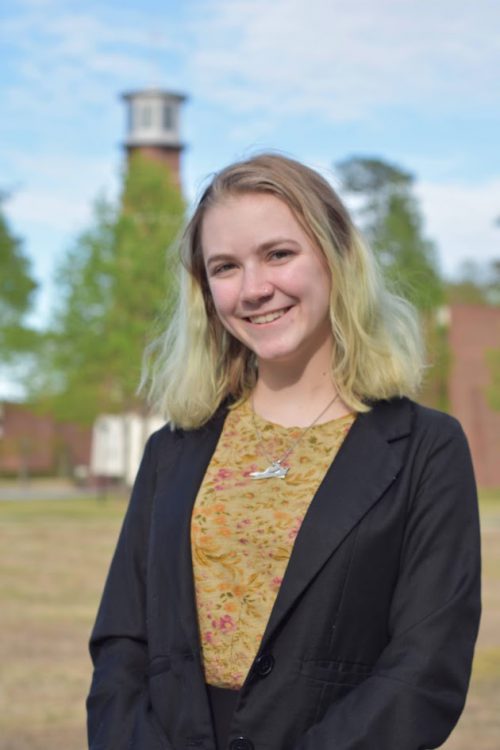Every February, Black History Month is celebrated all throughout the United States. Schools and universities celebrate certain leaders and achievements made by the Black community. Starting out as Black History Week in 1926, Black History Month has evolved into celebration and awareness for all Black leaders in American History.
With a rise in activism and social justice, the need for celebrating Black achievements is of utmost importance. On our campus, Black Lives Matter and Black Unity flags fly in the Batten Student Center.
The Office of Student Activities created a month-long schedule of events for students to get involved. These included paint nights, a Black leader periodic table and information sessions. In addition, a Black Artist Celebration dance party and a Bingo night were meant to liven up and embrace cultural backgrounds. Unique offerings include a traveling True Black History Museum, which is held in the Kramer Lounge. This museum will have primary artifacts, ranging from Rosa Parks to Frederick Douglass.
The amount of guest speakers invited on campus to talk during this month only was a handful of speakers. Dr. Ophera Davis, a professor in Africana Studies, spoke on Mississippi Black women during Hurricane Katrina. Her presentation introduced new topics to the audience; however, a lack of notice from the university on the event was apparent.
Several of the guest speakers are virtual, to accommodate COVID-19 policies. A special opportunity occurred on Feb. 15, with Lisa McNair, the oldest sister of Denise McNair from Alabama. Denise was one of the four girls who had been killed in the 1963 bombing of the Sixteenth Street Baptist Church. VWU has provided students the opportunity to live and learn history, in person and virtually.
The university has moved towards more inclusive practices and policies that integrate minority groups on campus. Prominent organizations, such as Black Student Union and Caribbean Student Association, include all students and are open to all backgrounds.
A new program on campus has emerged but has not received much traction and awareness in the VWU community. The new minor, Africana Studies, was established on campus during the 2021 year, but students heard little to no news, due to being overshadowed by COVID-19.
This groundbreaking insight into Black/Africana history and culture is taught at a Predominately White Institute (PWI), which is extremely important. However, a lack of conversation and coverage have done a serious disservice to this program. Africana Studies programs have been established since 1943, thus the necessity for institutions to have them has arrived.
The Africana Studies program offers a view into the African Diaspora and cultural studies that accompany it. Helmed by Dr. Modupe Oshikoya, the Africana Studies program encompasses history, literature, politics and art that celebrate African and Black culture.
With new academic classes being established, Virginia Wesleyan is educating future generations on Black history and culture, while advocating for social change. However, we are far from being a diverse school, with the racial and international diversity percentage being less than half, at 45.3%. Small changes that are being made are a step in the right direction; however, much still has to change with our faculty and student population diversity rates.
Going forward, it will be exciting to see how the campus community continues to grow. Diversity is an important part of our culture and learning about new topics allows for conversation and acceptance.
By Grant Morgan
gamorgan@vwu.edu


